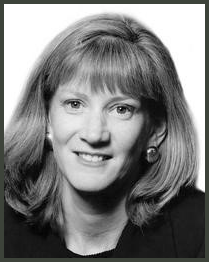From Paddi's Desk
by Paddi LeShane

Public hearing sign-ups at the crack of dawn, long waits, followed by three minutes in the spotlight was what was in store for those giving testimony at the State Capitol this past week.
In the next two weeks, many committees will wrap up their screening and approval of bills for public hearings, as the deadline for any new ideas will be February 20th. This week committees kicked off the first of what will be hundreds of public hearings this session, which created a madhouse for parking, a crowded café and limited access to legislators as the members of the public were also in the mix trying to track down their elected officials and grab some face time to discuss what was on their minds.
As the pace at the LOB picked up, across the highway at the Capitol, the second floor (Governor/House Offices) and third floor (Senate and Lt. Gov. Offices) were somewhat quiet. Governor Lamont is knee deep in creating a new face for CT state agencies through creative appointments of individuals with some serious business ties and experience - as opposed to the normal political appointments made during the first year of a new Governor's tenure. A few of those appointees started to flow through the legislature's executive nomination process this week, with loads of questions and probing on how they would change the way government works and what specific topics they would or would not support. Almost all had been astute enough to yield to the Governor and focused their responses on the Governor's first State of the State budget speech where he will introduce his two-year budget plan.
Meanwhile, some other appointees were "featured" in the media - vetting their past experiences, their backgrounds and even their marital status! Nothing is private these days - especially with public officials and the new reality of social media.
Back at the LOB, it's interesting to see how all the new partnerships at the committee level are really working smoothly. Many wondered how Senate Republicans would react to their return as committee Ranking Member status, and it appears in almost all cases, it's working seamlessly. Maybe the last two years of "shared leadership" created a better collaborative relationship for the session ahead. Still, several committees are struggling, not because of personalities, but philosophies, and there's a lot of focus on moving a large "progressive" agenda forward and fast. While there's a huge difference in philosophy between the large Progressive Caucus and the teams of the moderate Democrat and Republican caucuses, it has been cordial so far.
Next week is packed with public hearings, anticipation for the Governor's budget release is building and we're expecting a flood of fully drafted bills to start appearing for all those committee bills approved for a public hearing this past week.
So the sun was out a lot this week, people were working together and life is normal under the state flag - for now. Let's see how next week turns out as large public audiences are expected to arrive to speak their peace.
|
|
 |
|
by Mike Johnson
"Legislative Priorities" was the catch-phrase of the week with all four legislative caucuses, along with the Black and Puerto Rican Caucus, as they discussed their priorities for the 2019 session.
The Senate Democrats led an ambitious week of announcements where their priority items included a number of labor and employment policy changes. Some of those include a minimum wage increase to $15 an hour, implementing the state's first paid FMLA program and prohibiting scheduling changes for employees less than 72 hours in advance.
They also unveiled election proposals to allow more flexibility in voting before Election Day and outlined priorities for healthcare policy changes in response to policy shifts occurring on the federal level. House Democrats joined the Senate on Monday to announce they too wanted to increase the minimum wage and implement a paid FMLA system, however, additional priorities of the caucus will be released in the near future.
House Republican Leader Themis Klarides held media availability this week where she discussed House Republican opposition to implementing 82 tolls in CT, a number that had been recommended by a report from DOT that was prepared for legislators to evaluate. Klarides also shared that proposals to tax groceries and prescription drugs have been dominating the phone lines at their offices, potential proposals which her caucus has come out completely against.
Related to minimum wage and paid FMLA, there will likely be some members of the House Republican caucus where if either of those bills are called may vote yes, but there will be a large amount of deliberation and discussing surrounding both of those issues. In a press conference this week, Senate Republicans discussed how healthcare is and has always been a major priority for their caucus, in addition to policies that were implemented in a bipartisan budget from 2017 which included addressing tax cuts for seniors and retirees as well as passing a budget that helps reduce future deficits.
All of these proposals will take shape soon, but the elephant in the room remains the $1.5B deficit estimated for the fiscal year beginning July 1st. Governor Lamont has his chance to propose his ideal budget on Feb 20th which will certainly create an atmosphere of tough decisions.
|
|
|
|
Did You Know?
This Week in History
February 7th, 1899
Electric Boat Begins Over a Century of Submarine Building

For over 100 years, Electric Boat has been the primary producer of submarines for the United States and allied countries around the world. From its headquarters and shipyard in Groton, Connecticut, and auxiliary shipyards located in Quonset, RI and Newport News, VA, Electric Boat has designed and built dozens of technologically-advanced submarines for the U.S. Navy, beginning with the Navy's first-ever formally commissioned submarine, the USS Holland, in 1900.
The Electric Boat Company was formally incorporated on February 7, 1899, as a partnership between engineer John P. Holland and investor Isaac Rice. Holland, an Irish immigrant known to history as the father of the modern submarine, had created the Holland Torpedo Boat Company in 1893, but the company found itself financially struggling. With the financial backing of Isaac Rice, the Electric Boat Company was able to complete Holland's latest design, a 54-foot-long vessel considered the first practical military submarine. In 1900, the U.S. Navy purchased the innovative sub and commissioned it the USS Holland, making it the inaugural vessel of the United States submarine force.
Electric Boat continues to be a dominant force in global submarine production - having produced nearly all of the vessels for the U.S. Navy's Los Angeles, Virginia, Seawolf, and Ohio submarine classes - and remains one of the largest economic drivers of southeastern Connecticut.
|
|
|
|
|
What's Hot
A new legislative session is filled with new proposals, and one of the main hot button issues this year is that of sports betting.
Big question. Who could operate sports betting in CT? Read more
here to learn about some players that are looking to get a piece of the pie.
|
|
|
CT Agency Corner
By Chelsea Neelon
As reported by CT News Junkie, last week "the Education Committee voted to raise the concept of requiring the Office of Early Childhood (OEC) to develop a compensation schedule for early childhood educators in an effort to improve services for children and families in CT."
This proposal of a compensation schedule would give early childcare workers the ability to earn better pay over time. While members of the legislature know that a possible minimum wage hike is coming down the pipeline, Rep. Bobby Sanchez, chair of the Education committee, worries that won't help all early childcare workers in the state.
The committee hopes that with a consistent pay schedule, more early childhood educators will stay in the field. Beyond that, they hope to increase the rates that the Care4Kids program pays to child care centers. But right now, all hinges on the upcoming Governor's proposed budget that will come out in a few weeks.
|
|
|
Municipal
Roundup
by Ryan Bingham
Hartford's recent impetus in taxable property has come to a halt as it looks to lose $3.2 million due to a reduction in its grand list. The city had seen a 10% growth in taxable property in 2017, and a modest .2% growth in 2018. However, Hartford's grand list revenue will decrease from $4.078 billion to $4.03 billion, due to apartment conversion and tax appeals.
In Hartford, city buildings with four or more units are assessed as commercial property. Whereas condominiums are considered residential property and are taxed at a much lower rate. It has been a common practice in the past for property owners to reclassify their buildings as condos in order to pay less taxes. Despite this practice being outlawed by the state last year, property owners rushed to reclassify their buildings last summer before the law took full effect. Since the practice is now illegal, property reclassification should not have such a negative impact on property tax revenues in the future.
Hartford Mayor Luke Bronin is not worried about this loss of revenue, as it does not seem to be a continuing trend. "The one comforting thing is that it's driven not by negative trends in sales, but by tax appeals and apartment conversions, which we don't expect to see at anywhere near the same rate in the years ahead," said Bronin in an interview with the Hartford Courant.
All in all, with new building projects on the horizon such as a mixed-use project at the corner of Park and Main streets, and apartments, retail stores, and parking garages surrounding Dunkin' Donuts Park, Hartford lawmakers should remain optimistic about the future of the city's taxable property revenue.
|
|
 |
|
2019 Behind the Scenes
by Chelsea Neelon
Session is back in action and so are our "behind the scenes" interviews with members of CT's General Assembly!
This week, we featured Representative Jesse MacLachlan who represents the 25th House District.
What are your legislative priorities this session?
- To advance transit oriented development initiatives within my district, to modernize our sales tax collection methods, and pioneer legislation that addresses emerging technologies like Artificial Intelligence.
What legislation are you most proud of being a part of getting passed?
-
Two bipartisan budgets - 2017 and 2018.
Last question! What's your favorite hobby?
-
I enjoy camping and hiking National Parks.
|
|
|
 |
|